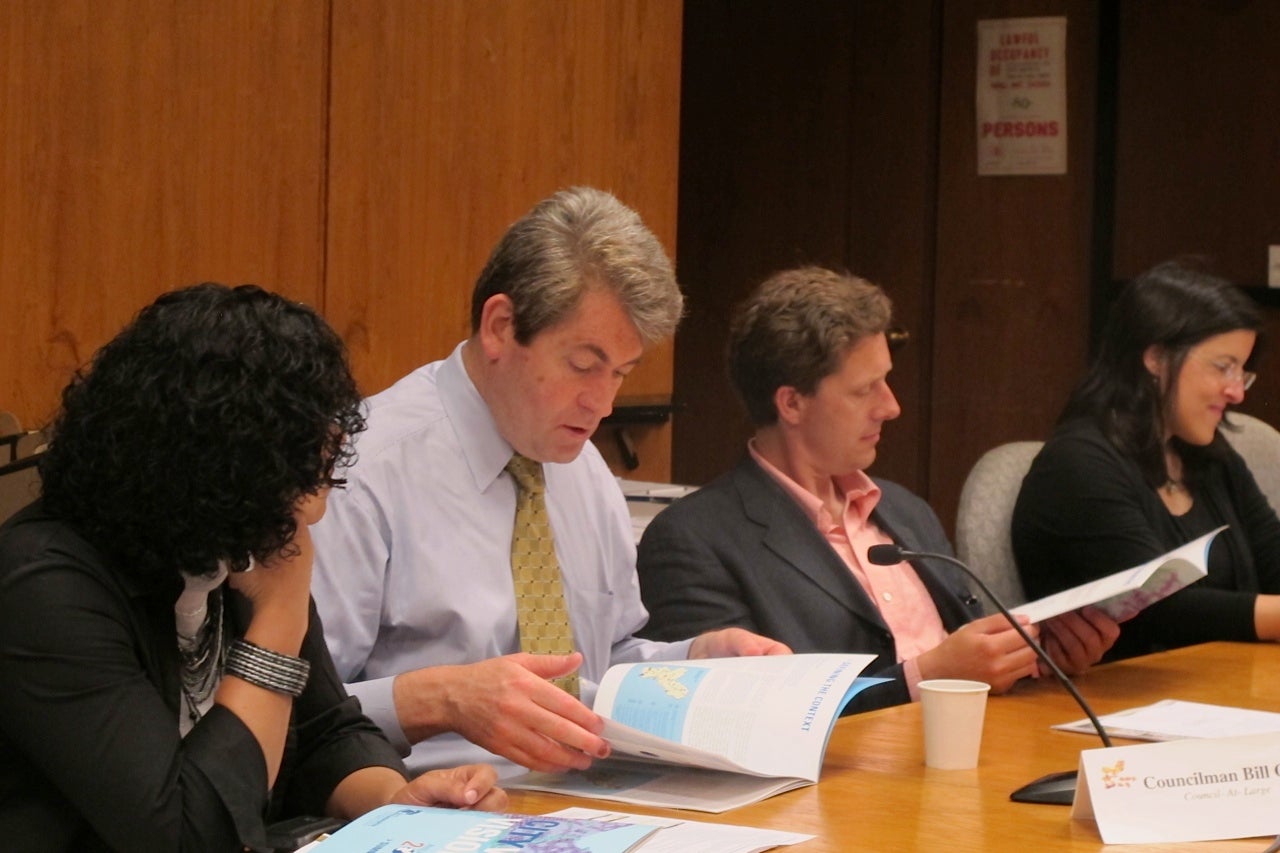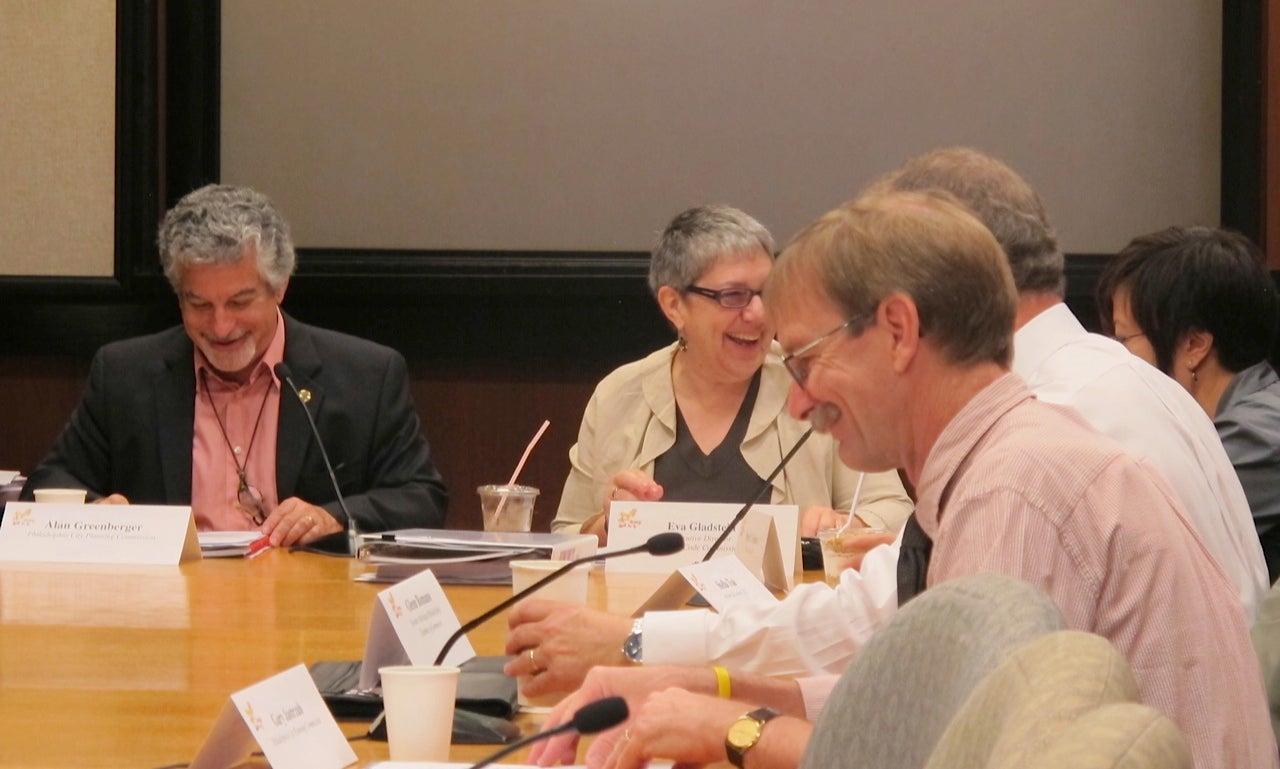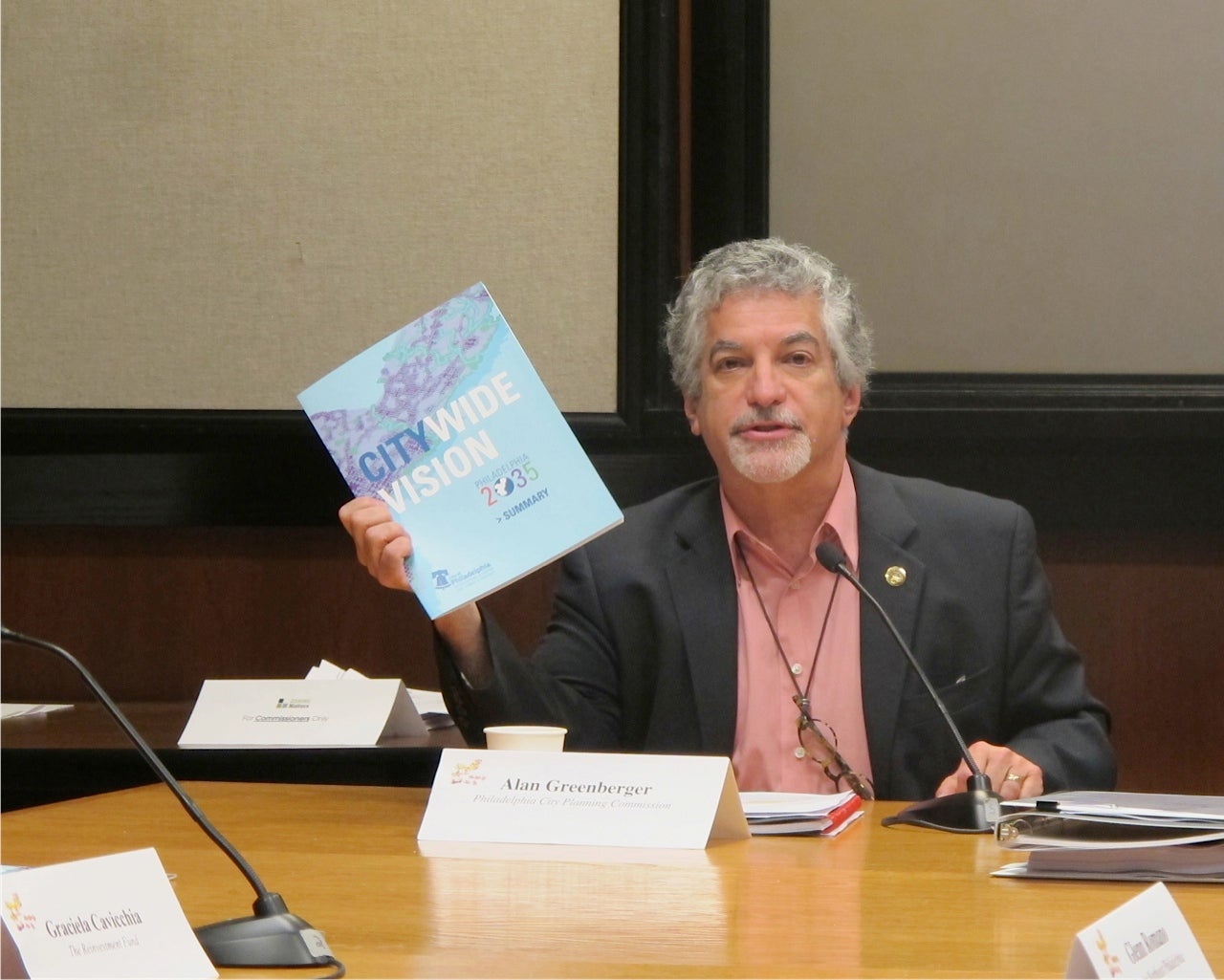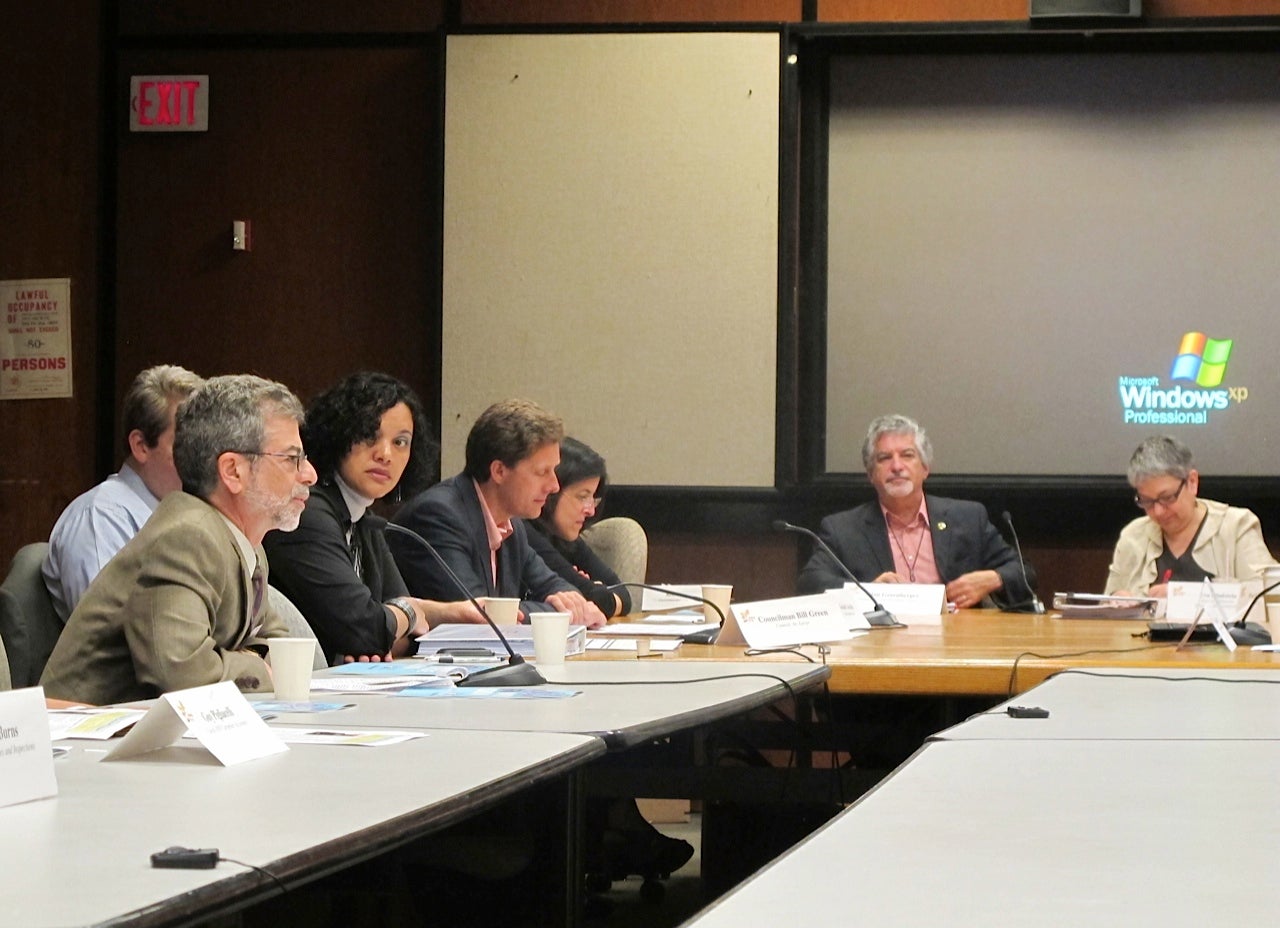Zoning Code Commission holds last meeting before summer recess
By Jared Brey
For PlanPhilly
The Zoning Code Commission’s last meeting before summer recess, held on Wednesday, June 8, was lightly attended, with not even enough commissioners present to adopt the minutes from the last meeting on May 11. The agenda for Wednesday’s meeting, likewise, was relatively light.
Deputy Mayor Alan Greenberger chaired the meeting and reviewed the progress of the zoning code reform. Last week, City Council authorized public hearings on the ZCC’s proposals. According to Greenberger, the Committee of the Whole Council may open public hearings as early as next week.
ZCC Executive Director Eva Gladstein then informed the Commission of changes made to the zoning code reports since the last meeting. Aside from a few formatting improvements, the only substantial new zoning proposal was the addition of a residential district known as RTA-1, previously R5A, for two-family houses. According to the proposal, RTA districts are “primarily intended to accommodate two-family, semi-detached houses on individual lots, but may be applied in areas with a mix of housing types, including detached and attached houses.” Essentially, this proposal prevents owners of two-family houses in RTA districts from dividing their buildings into more than two apartments; R5A districts are clustered in Northeast Philadelphia, and as twin houses in neighborhoods like Germantown and parts of West Philadelphia. Copies of the zoning code proposals have been delivered to members of City Council and Chambers of Commerce, posted on the websites for the ZCC and the City of Philadelphia, and made available at Free Library branches throughout the city.
Councilman Bill Green proposed that the commission create a “formal, obvious process” by which members of the public could learn about the specifics of zoning reform. Under Green’s proposal, individuals would be able to use the Internet to submit specific addresses to the ZCC and learn what regulations govern those properties under both the current zoning code and the reformed code. The commission briefly discussed the idea, and Greenberger said they would work on organizing it.
During the part of the meeting open to public comment, Irv Ackelsberg, a spokesman for the recently created civic association Germantown Community Connections, worried over “unintended consequences” of the ZCC’s work. Ackelsberg said he was concerned that the reformed code removes the zoning overlay for Lower and Central Germantown. Under the current code, that overlay prohibits certain uses, such as barber shops, beauty shops, nail salons, and furniture stores. Ackelsberg said removing those prohibitions would result in “a loss of control” for Germantown residents, and an overconcentration of such businesses in Germantown. In response to that concern, Commissioner Greg Pastore said that the ZCC had already discussed whether to regulate concentration of otherwise unregulated uses and decided that it would not. Pastore also identified a fundamental question facing communities that will lose their special control districts with the conversion.
“The question is: do you need an overlay in Germantown?” Pastore asked. Ackelsberg asked the commission to consider what he felt was Germantown’s need to control the types of businesses in its commercial districts.
At several points throughout Wednesday’s meeting, the commission broached the topic of sign controls in the new zoning code. Gladstein pointed out that Chapter 9 of the new code, which regulates signs, is merely a copy of the old sign controls. She said that an internal group was working on a framework to define and clarify sign control regulations. That group includes representatives from L&I, the Planning Commission, the Arts Commission, and the Commerce, Law and Streets departments. In the public comment period, Lorna Katz Lawson, a Society Hill Civic Association boardmember, suggested that a member of the Historical Commission also get involved with the sign control issue.
Ed Panek of the Logan Square Neighborhood Association and the Crosstown Coalition, asked “that the ZCC ask Council to take a moratorium on [sign] bills until such time that they’ve had the benefit of your expertise.”
The bills to which Panek referred include the proposal to open up East Market Street to non-accessory signs as a commercial advertising district.
“I don’t think there’s any particular need for any of these bills to be passed immediately,” Panek said.
Commissioner Stella Tsai noted that the ZCC’s Civic Engagement Commmittee was planning focus groups and community meetings around the issue of sign control over the coming months. Gladstein said that the ZCC had a tentative plan to send a revised Chapter 9 to City Council in the spring of 2012.
“That’s a goal and a hope,” Gladstein said, “but we think we’re in striking distance of that.”
Nick Gilewicz contributed to this story
Contact the reporter at jaredbrey@gmail.com
WHYY is your source for fact-based, in-depth journalism and information. As a nonprofit organization, we rely on financial support from readers like you. Please give today.







